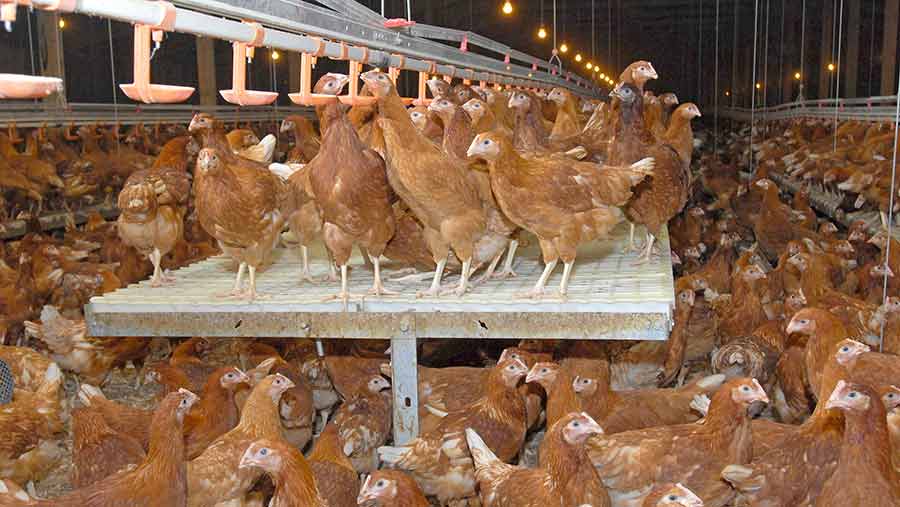RSPCA launches new pullet-rearing standards
 © John Eveson
© John Eveson Welfare standards for pullets in the RSPCA’s Freedom Foods scheme are being updated and include new enrichment, lighting and stocking density requirements.
The new standards, due to come into force in August, require that pullets are provided with foraging and/or pecking objects at a rate of at least two items per 1,000 birds to curb feather pecking.
Pullet rearers will also have to increase minimum lighting levels from five lux to 10 lux to ensure the maintenance of good eye health.
See also: ‘Rear it yourself’ lifts profit for Sussex egg producer
And maximum stocking densities for brood and move/double brood systems have also been developed to prevent overstocking of pullets during the early weeks of rear.
Mia Fernyhough, RSPCA senior scientific officer, said the review process had been undertaken in consultation with the farming industry, vets and welfare researchers to ensure that the standards take proper account of the latest research and practical developments and continue to represent “best practice” in farm animal care.
Ms Fernyhough said: “While feather damage from injurious pecking behaviour is rarely seen during the rearing phase, it is during this time that the behaviour develops, so it’s really important to put in place interventions as early as possible.
“Even very subtle feather loss at an early age significantly increases the likelihood of feather damage and feather loss occurring in adult laying hens.”
Some Freedom Food pullet rearers have already been trialling the use of enrichment materials, including small bales of straw and plastic –wrapped bales of wood shavings. Adding dots and crosses with black marker pen appears to make plastic hanging objects, such as bottles and wellington boots, more interesting to the birds, she added.
Enrichments
The announcement on environmental enrichment was welcomed by pullet rearers and the NFU, but criticised by the British Free Range Egg Producers Association chairman Myles Thomas, who said he did not believe pecking enrichments prevented feather loss.
“While I welcome the changes to lighting levels and stocking densities, I don’t believe enrichments really achieve anything. Producers are potentially wasting their time putting in enrichments. When the birds get bored of enrichments they simply turn on each other,” he told Poultry World.
But Dave Brass, Lakes Free Range Egg company chief executive, said it was important to curb feather pecking at the rearing stage, saying evidence has shown that four-fifths of pullets feather pecking will go on to peck during laying.
Mr Brass also welcomed the moves to increase lighting for pullets: “The birds need to have the same level of lighting at rearing and at laying,” he stressed.
Gary Ford, NFU poultry adviser, said it was important to minimise injurious feather pecking and the process needed to start at the pullet stage with additional enrichment opportunities for the birds.
